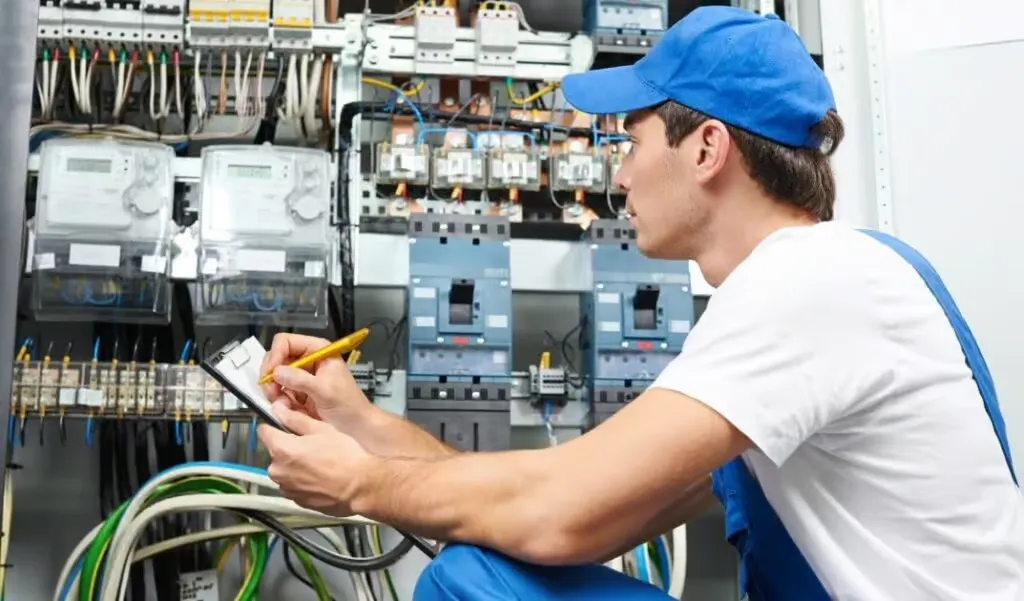
Are you concerned about the safety of your electrical installations? Ensuring electrical safety is crucial for every home and business, and it starts with hiring a licensed electrical contractor. Whether it’s routine electrical safety inspections or specialized electrical work, understanding the importance of proper cable management and thorough safety checks can prevent hazardous situations.
An electrical inspection can fail due to various factors, including improper or outdated wiring, overloaded circuits, incorrect breaker sizes, and faulty grounding. Other common reasons include faulty GFCI and AFCI protection, outdated electrical panels, and inadequate labeling of circuit breakers. Additionally, unauthorized modifications or risky practices can lead to inspection failures.
Outdated or Unsafe Wiring
Older wiring methods, such as knob and tube wiring or aluminum wiring, can fail an inspection if they are outdated or unsafe. Insufficient or damaged insulation on wiring can also lead to inspection failures.
Improperly Installed Fixtures
Improper installation of electrical fixtures, including light fixtures, outlets, and switches, can result in failed inspections. Issues like inadequate electrical box size, incorrect wiring connections, and lack of proper grounding are common problems.
Overloaded Circuits
Overloading electrical circuits by having too many devices or appliances on a single circuit can lead to tripped breakers, overheating, and fire hazards.
Improper Grounding and Bonding
Electrical systems must be properly grounded and bonded to ensure safety and prevent electrical shocks and fires. Missing or damaged grounding wires can cause an inspection to fail.
Inadequate GFCI and AFCI Protection
Ground fault circuit interrupters (GFCIs) and arc fault circuit interrupters (AFCIs) are required in certain areas to protect against electrical shocks and fires. The absence of these devices can result in an instant inspection failure.
Unsafe Electrical Panels
Issues with electrical panels, such as overcrowded wiring, inadequate clearance, corrosion, rust, or missing covers, can pose significant risks and lead to inspection failures.
Incorrect Labeling and Accessibility
Electrical panels must be properly labeled, and electrical equipment must be easily accessible for maintenance and repair. Missing or incorrect labeling and inadequate accessibility can cause an inspection to fail.
Understanding the Inspection Report
When a home or building fails an electrical inspection, the inspector will provide a detailed report outlining the issues and necessary corrective actions. The report should clearly explain each problem, citing the relevant electrical code sections and providing guidance on how to address the violations.
Consequences of Not Fixing Electrical Problems
Neglecting electrical problems can lead to serious consequences, including safety risks, increased repair costs, high energy consumption, insurance problems, and legal issues. It’s essential to address any issues identified in an electrical inspection report promptly to ensure the safety and compliance of the electrical system.
Steps to Take After a Failed Inspection
If your home or building fails an electrical inspection, follow these steps:
- Study the inspection report to understand the problems and required corrective actions.
- Avoid using any hazardous wiring, circuits, or panels until repairs are complete and the system passes re-inspection.
- Hire a licensed electrician to perform the necessary repairs and ensure compliance with electrical codes.
- Schedule a re-inspection once the repairs are complete to verify that the electrical system meets all safety and code requirements.
By addressing the issues identified in an electrical inspection report and taking the necessary steps to correct them, you can ensure the safety and functionality of your electrical system and avoid potential hazards and legal consequences.
Closing Thoughts
Ensuring compliance with electrical standards is vital for home safety and preventing code violations. Common reasons for a failed electrical inspection include outdated wiring, improper installations, and lack of certification from registered electrical contractors like Calibre Connect. Conducting regular inspection and testing of electrical equipment helps detect electrical faults, ensuring adherence to safety requirements outlined in the Safety Act.
Rental providers must prioritize these checks to maintain safety standards for tenants. For reliable electrical services and to obtain your certificate of electrical safety, trust Calibre Connect. We proudly serve Sydney and nearby areas, ensuring your electrical systems are safe and compliant.
Contact us today to schedule your electrical inspection.

